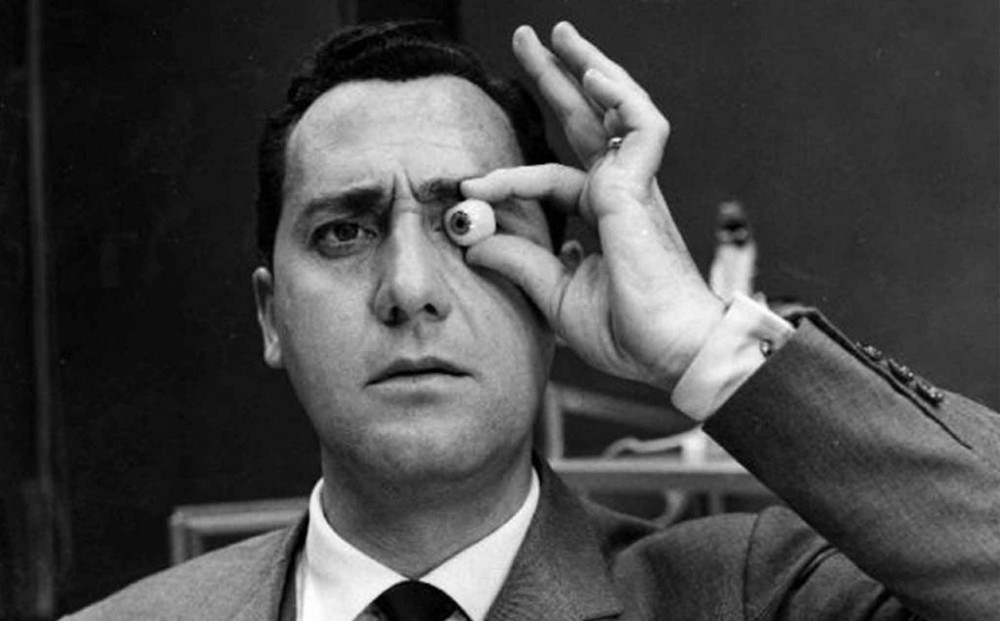De Sica’s IL BOOM
1:00 6:00
Must End Thursday, July 13
![]() THE UNSEEN FILM BY VITTORIO DE SICA
THE UNSEEN FILM BY VITTORIO DE SICA
NEVER BEFORE RELEASED IN THE U.S.
Starring Alberto Sordi
(1963) Amidst Italy’s “economic miracle” (“il boom”) of the early 1960s, everybody’s dancing to Chubby Checker’s “The Twist”… and getting filthy rich – everyone except archetypal Everyman loser Alberto Sordi (the great star of Mafioso, The White Sheik, I Vitelloni, etc., etc.), who’s in hock to his eyeballs. And everyone in Rome seems to know it, except his beloved status-proud wife Gianna Maria Canale. But then rich, rich matron Elena Nicolai (long-time La Scala mezzo stalwart tour-de-forcing in her first movie role) offers him a way out: enough lire to get out of debt – and to re-establish himself – in exchange for … No, not that. Biting satire made even blacker by Piero Piccioni’s persistently perky score, and scripted by De Sica’s longtime collaborator Cesare Zavattini, (Shoeshine, The Bicycle Thief, Umberto D., Gold of Naples, etc.). Never released in the United States, and screened here only a handful of times in fifty-four years, this is its first long-run New York City engagement, with brand new English subtitles by Michael F. Moore and Bruce Goldstein. DCP restoration. Approx. 88 minutes.
A RIALTO PICTURES RELEASE
Reviews
“CRITIC’S PICK! Packed with trenchant observation and mordant wit!”
– Glenn Kenny, The New York Times
“Among the most savage and surreal of Italian comedies… De Sica and Zavattini draw both humor and pathos. It’s that combination of qualities — real people, caught in a surreal word, reacting in recognizable ways to a society rapidly spinning out of control — that makes Il Boom so vibrant, funny and disturbing.”
– Bilge Ebiri, The Village Voice. Read the full rave review here.
“A cathartic experience. For those who only know De Sica for the neorealist classics Shoeshine (1946), Bicycle Thieves (1949) and Umberto D. (1953) or the film he made just before Il Boom, Two Women (1962), this ostensible farce might be a surprise, but the tragic undercurrent that pervades the storyline fits well into [De Sica’s] longstanding left-wing sociopolitical concerns… At the climax of the story, Il Boom edges toward suspense, even sci-fi horror, and the actors never overplay the sequence as it becomes large-scale physical comedy, making the unexpected ending all the more poignant and somewhat chilling.”
– Eric Monder, Film Journal International
“Advances a shockingly brutal metaphor for the Sordi character’s need to maintain his wife’s luxurious lifestyle, as well as the demands of capitalism itself. An unusually barbed example of the commedia all’italiana.”
– J. Hoberman, New York Review of Books
“A BITTERSWEET SATIRE OF THE WIFE-SWAPPING, TWIST-DANCING, GET-RICH-QUICK LIFESTYLE! Perhaps it’s the current credit crunch that makes De Sica’s sardonic comedy, about uxorious husband Giovanni drowning in debt in the consumer excess of the early 1960s, feel newly resonant. Puzzlingly marginalized until recently in surveys of De Sica’s commedia all’italiana period, it’s underpinned by a deliriously mocking script from Zavattini and the callous, neon-shiny cityscapes of DP Armando Nannuzzi. As Giovanni, Alberto Sordi expertly blends clowning, contempt and desperation, wrapping his pleas to friends for loans in a gay and ghastly humor that turns a tennis match into an extended humiliation.”
– Kate Stables, Sight & Sound
“A REAL MASTERPIECE! A PROPHETIC FILM! ONE OF THE MOST FUTURE-DIRECTED FILMS IN ALL OF ITALIAN CINEMA!”
– Walter Veltroni
“One of the most undervalued of all the films to emerge from the director’s long and fruitful collaboration with Zavattini. In more recent times, however, the film has found its champions. Italian film historian Enrico Giacovelli has re-evaluated it as not only one of the duo’s finest films but also as something of a minor masterpiece of the commedia all’italiana (comedy Italian style), that particularly mordant form of film comedy that arose in Italy in the late 1950s as a reflection of – and a reflection upon – the profound moral dilemmas and social contradictions brought about by the so-called Italian ‘economic miracle’… 20 years later in a post-Berlusconian Italy, its uncanny prescience becomes even more evident.”
– Gino Moliterno, Senses of Cinema

